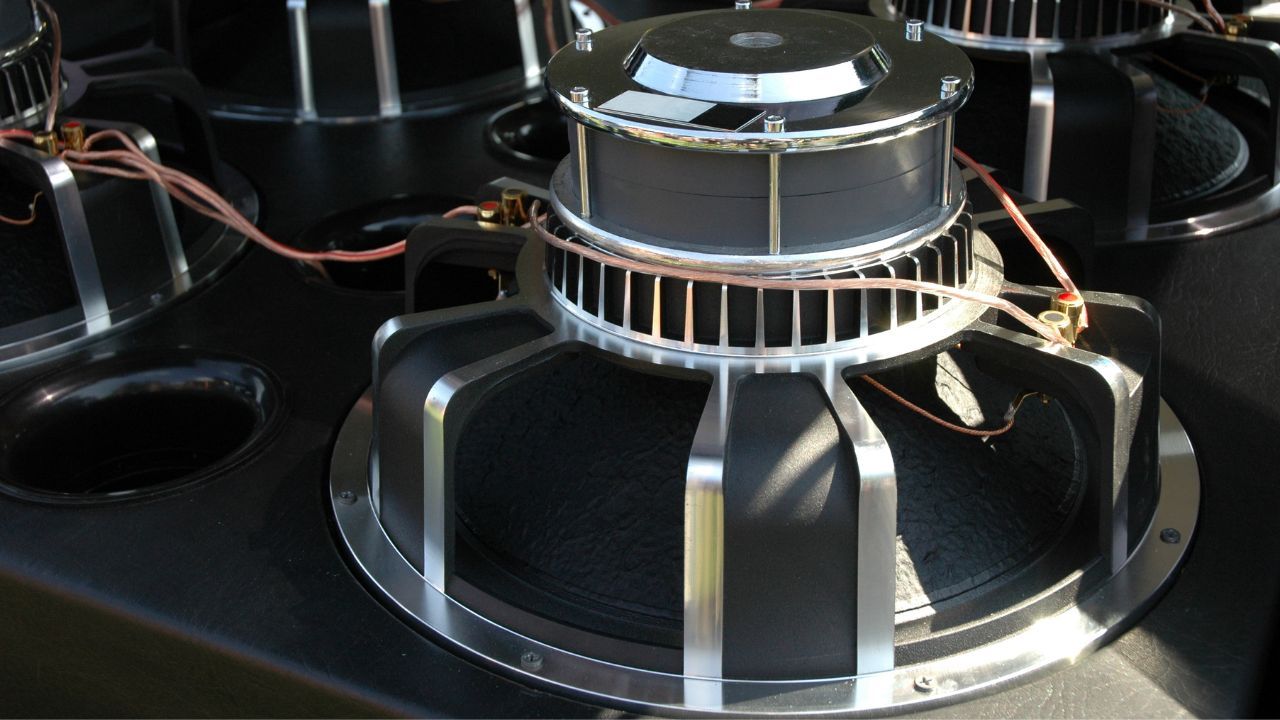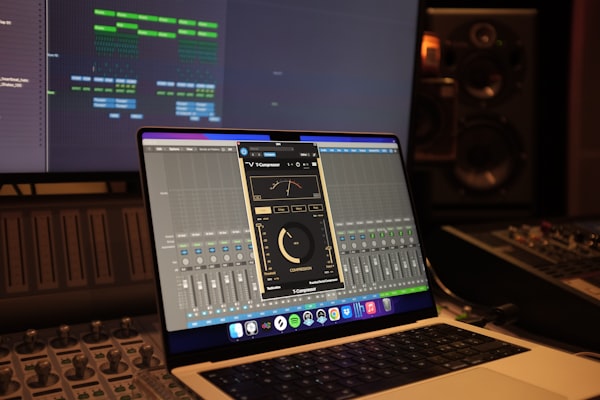Do you need a subwoofer? Are subwoofers worth the money?
Knowing whether you need a subwoofer or not can be tricky, especially when it depends on different factors, including your music taste and room acoustics.
Subwoofers can also be expensive, as well as large and heavy, which are more things to consider when it comes to buying one or not.
But don’t fret, as this simple guide will help you to decide whether you need a subwoofer or not, and even if a subwoofer is worth buying for you personally.
So, without further ado, let’s jump.
What Exactly Does A Subwoofer Do?
Simply put, a subwoofer is a large speaker designed to produce bass and sub-bass frequencies.
These are the frequencies between 20 Hz (hertz) and 200 Hz, which include anything from low “rumbles” to kick drums, bass guitars, and low snares.
Typically, a subwoofer driver (also called a woofer) will be at least 8 inches in diameter, with some subwoofers being as large as 20 or more inches.
Subwoofers complement speakers that cannot produce frequencies below 200 Hz.
Most commonly, subwoofers are used for bass guitar amplifiers, home cinemas, music studios, live performances, and audiophiles.
Do I Need A Subwoofer With My Speakers?
The short answer is that it depends. And, because of that, there are a few things to consider before buying a subwoofer for your home studio, home cinema, or car.
Below, we have listed all the things to think about before you head out and buy a subwoofer.
After reading the following, you will have a better idea of whether you need a subwoofer and if it will be worth the money.
Speakers And Compatibility
The first thing to consider is the speakers you currently own. In general, if your speakers are 5 inches or smaller, you should not expect them to produce frequencies lower than 100 Hz.
For that reason, a subwoofer might be desired or even necessary. At the same time, however, a subwoofer might not be ideal if your speakers are too small (below 3 inches, for example).
In this case, a subwoofer could be overpowering and therefore the sound will not blend well sonically.
Music Genre
Another thing to consider is the music you predominantly listen to. If you mostly listen to music genres where sub-bass is not prevalent, such as classic music or ambient music, a subwoofer is generally not necessary.
On the other hand, if you listen to a lot of EDM, hip hop, or metal music, a subwoofer is something that will complement your overall listening experience.
Music Production
If you are a music producer, a subwoofer can provide the extra low end needed to mix your tracks to a professional standard.
While headphones can be used to do this, headphones still do not replicate the sound of music in an acoustic environment.
This will also depend on the size of your studio monitors. Small studio monitors, such as 5-inch monitors, will not effectively produce sub-bass frequencies, for which a subwoofer would be needed.
For 8-inch monitors, however, a subwoofer can be deemed unnecessary.
Room Size (Room Acoustics)
Subwoofers can be large, of course, but that is not what we are talking about here.
Bass and sub-bass frequencies have the largest wavelengths, and therefore a large room is ideally needed for them to be heard.
If you plan to put your subwoofer in a small room, you can expect some frequencies to be unbalanced or entirely inaudible.
Due to this, you might find yourself overcompensating by turning the volume of your subwoofer up, which can create more imbalance.
Home Cinema
If you are a cinephile with a home cinema, a subwoofer can be a great addition to your setup, effectively enhancing your movie experience to be similar to a cinema. Subwoofers can be included with home sound systems or connected to compatible systems.
Remember, however, that room acoustics are important. The ideal home cinema room should be relatively large in size to make sure that the low frequencies from your subwoofer can be heard in a full, balanced range.
Events And Live Performances
If you host events and live performances, a subwoofer can be considered necessary if you need your sound system to produce clear bass and sub-bass frequencies. Again, this will depend on the music you are playing, venue size, and audience.
If you have a high-quality PA system with large, powerful speakers, you might not need a subwoofer.
Despite this, a subwoofer will complement your overall setup if you are playing music genres that feature a lot of sub-bass.
Neighbors
Last but not least, the final thing to consider is your neighbors. As mentioned above, sub-bass and bass frequencies have the largest wavelengths, which means the frequencies can travel larger distances.
This is the reason bass sounds are heard before high-frequency sounds, as well as heard through walls and from across the street. Before buying a subwoofer, make sure your neighbors won’t mind!
Frequently Asked Questions
Does A Subwoofer Only Play Bass?
Subwoofers are speakers will large drivers designed to capably produce low frequencies, including bass and sub-bass.
Due to this, subwoofers will only produce sounds within a general frequency range of 20 Hz and 200 Hz.
A subwoofer will need to be connected to other speakers for a full range of frequencies to be heard.
In addition to volume, subwoofers can also have a low-pass filter that can “cap” higher frequencies to blend sound as part of a full speaker setup.
Do Subs Make Your Music Louder?
Technically speaking, subwoofers do not make your music louder. Low-end bass frequencies (produced by subwoofers) have large wavelengths that cause bigger vibrations and are easily felt, which can make the music seem louder.
Despite this, bass and sub-bass frequencies have the ability to travel farther due to their large wavelengths, which, from that perspective, can be viewed as louder, since the sound is passing through walls and traveling across large distances.
Conclusion
In conclusion, you might need a subwoofer if you are a music producer, audiophile with a home cinema setup, events host/live performer, or simply someone with small speakers that cannot produce sub-bass.
If you are someone who plays a lot of bass-heavy music, this is another reason a subwoofer would be worth it.
Just remember that room size matters (subwoofers are not effective in small rooms), and consider neighbors that might hear the subwoofer.









Member discussion